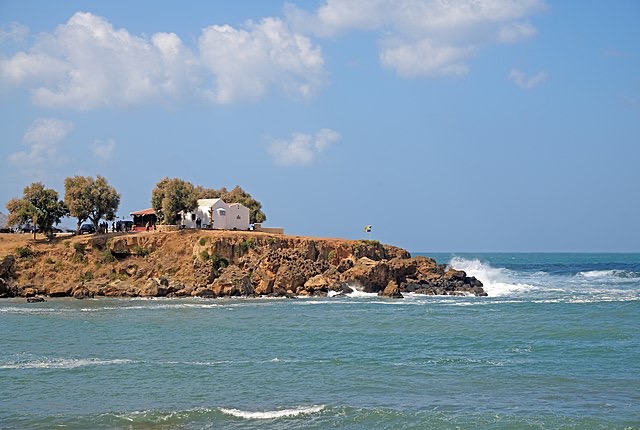A powerful 6.1-magnitude earthquake rocked the Greek island of Crete early Thursday morning, triggering widespread alarm and prompting a tsunami warning for surrounding coastal areas. The tremor, which occurred just after 6:15 a.m. local time, sent shockwaves across the eastern Mediterranean and was felt as far away as Turkey, Israel, and Egypt.
As buildings swayed and residents rushed into the streets, seismologists issued immediate alerts, cautioning both locals and tourists to move away from the coastline and seek higher ground. While no major casualties were reported, the event stirred deep concern, especially among the thousands of tourists currently vacationing on the island.
This seismic jolt serves as a stark reminder of the volatile tectonic setting of the region and has reignited conversations around earthquake preparedness and coastal evacuation protocols.
Earthquake Details
The 6.1-magnitude earthquake struck northeast of Elounda, approximately 58 kilometers from the island’s northern coastline. According to the Geodynamic Institute of Athens, the quake’s epicenter was situated offshore at a depth of 69 kilometers—deep enough to reduce the risk of catastrophic surface destruction but powerful enough to rattle buildings and alarm the public.
Tremors lasted for several seconds and were reportedly strong enough to shake furniture, trigger minor landslides, and cause visible structural rattling in Heraklion and surrounding towns. Seismologists believe that the depth of the quake played a significant role in minimizing direct surface damage, despite its magnitude.
The earthquake’s offshore location, however, raised immediate concerns about a potential tsunami, especially with shallow-sea floor displacement being a known precursor to such events.
Immediate Tsunami Warning
Soon after the quake, the European-Mediterranean Seismological Centre and Greek authorities issued a tsunami warning. Coastal areas, especially in northeast Crete, were advised to evacuate as a precaution. Loudspeaker announcements, mobile alerts, and emergency broadcasts were swiftly activated, urging residents and tourists to avoid beaches and low-lying areas.
Although no large tsunami waves were ultimately reported, the warning was not taken lightly. Authorities maintained elevated alert levels for several hours while monitoring ocean behavior using tide gauges and satellite data.
Emergency crews were deployed to assist with the evacuation, particularly in tourist hotspots like Hersonissos and Agios Nikolaos. Precautionary measures included closing beaches, suspending water activities, and redirecting road traffic away from vulnerable coastlines.
Local Impact on Crete
While the island avoided severe destruction, the psychological impact was significant. The early morning quake jolted people awake, and many rushed outside, fearing aftershocks. In Heraklion, minor landslides blocked some roads, and loose debris fell from older buildings. Fortunately, modern structures remained largely intact, a testament to improved earthquake-resilient construction over the past two decades.
Schools were temporarily closed for inspections, and local councils launched structural safety checks on public buildings, particularly those housing essential services. In rural areas, farmers reported minor damage to stone walls and water systems.
Greek Prime Minister Kyriakos Mitsotakis was briefed by civil defense authorities, and government spokespeople reassured the public that the situation was under control, but that caution should be maintained.
Tourists Caught in the Quake
Crete, a favorite Mediterranean destination, is currently hosting thousands of tourists—many of whom experienced their first earthquake during this event. British holidaymakers were among the most vocal online, sharing stories of being “thrown out of bed” and “fleeing balconies.” Social media was quickly flooded with videos of shaking hotel rooms and panicked guests evacuating buildings.
In Hersonissos, a British couple reported that their hotel shook so violently that a part of the metal doorframe came loose. Others described being “terrified” as they felt the floors buckle underfoot.
Many tourists immediately contacted travel agents and embassies for advice, and some considered shortening their trips. However, Greek tourism officials were quick to calm fears, emphasizing the swift and effective response by local authorities.
Hotels implemented their emergency protocols, checking guest safety and offering updates via multilingual staff. Tour operators coordinated closely with local agencies to monitor the situation, ensuring the safety and reassurance of visitors.



